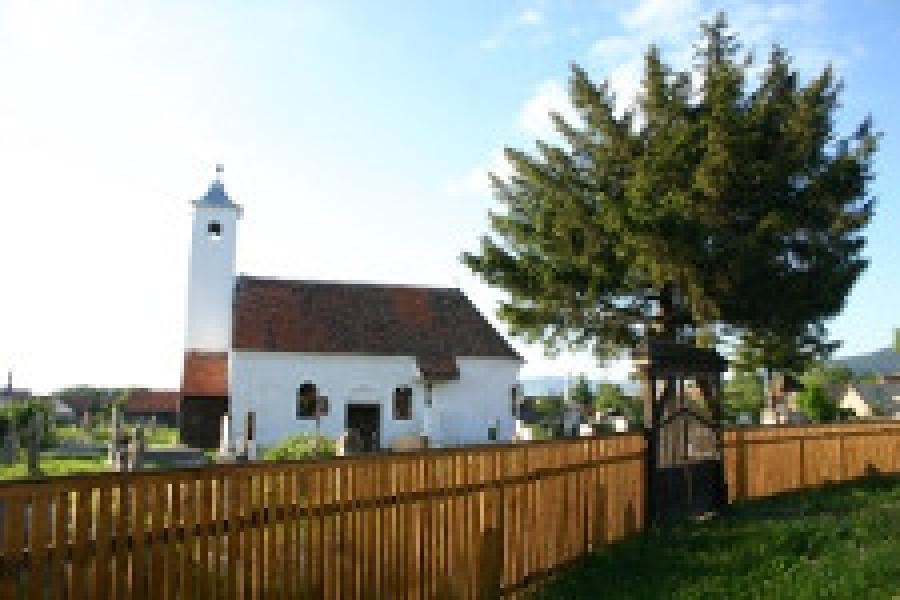From the Archives: Musings from a Country Cemetery
Image

A forgotten country cemetery sits atop a windswept hill not far down the gravel road from where my parents used to live. While living at home, my attention was always drawn in the opposite direction of that cemetery.
In the other direction was “town.” School, friends, athletic events, parades, concerts, restaurants, church—everything exciting was in that direction. But as the years passed and occasion afforded a brief visit home, my interests were strangely drawn toward that quiet graveyard. On occasion I would walk there and stroll among the tombstones.
Bordered by a shallow creek and cow pasture, nestled among a few gnarly trees, this little cemetery is one lonely place. I never saw another person there. There is no marquee, driveway or parking lot. No flowers, shrubs, benches, sidewalks or manicured lawn. Nor are there any impressive monuments—just simple, weathered tombstones rising in obscurity from the prairie grass. Some of the stones, as if too weary to stand any longer in their struggle against time, have been toppled over and rest on top of the graves they mark.
I find that laughter mends the soul. A stroll through a forgotten cemetery strengthens it. In a quiet graveyard the distractions of life are minimized and the pace slowed momentarily. And as we walk among the dead without distraction from the living, some of the delusions that typically cloud our perspective in a noisy world are temporarily lifted.
Walking through a graveyard I am reminded, first, that life is short and fragile. No matter how long we live, our days on earth are few and not one of them passes with a guarantee of another. The Apostle James wrote: “What is your life? For you are a mist that appears for a little time and then vanishes” (James 4:14). The author of Hebrews reminds us, “it is appointed for man to die once, and after that comes judgment” (Hebrews 9:27). I never walked away from that little cemetery with a renewed commitment to waste time or with a sense of invincibility. Seeing those gravestones was a reminder to invest my days in worthy pursuits (Psalm 90:12; Ephesians 5:15-16) and to thank God for the precious gift of life (Acts 17:25; James 1:17).
Second, graveyard walks bear witness to the reality that most of us live our days in historical anonymity. Most of us will eventually rest in a forgotten tomb bearing nothing more than a name and two dates. While our lives play out in varying movements of sound and fury, they fall silent in death. Once dead, all memory of our lives on earth begins to fade as those who knew us in life steadily join us in the grave. I never left that cemetery with a renewed sense of personal importance. I always left with a soul-strengthening dose of humility that inspired me not to take myself, my failures or my successes too seriously.
Third, I do not know that I can entirely explain it, but visits to that little cemetery always filled me with a measure of soul-strengthening joy. Walking among the dead, I gained an unmistakable sense of how good it is to be alive, and how good it must be to die well. To make a difference in this world, to love and serve others, to leave behind a legacy of faith, to live for the glory of God, and then to pass the portal of death into God’s eternal presence—what joy!
I always left that cemetery encouraged. I sensed there the reality that united to Jesus Christ by faith in his death and resurrection, I have been delivered from sin and thus have full assurance of participating in his resurrection life for all eternity (1 Corinthians 15:12-55; 1 Thessalonians 4:16-17). Death is no enemy for those who have become the children of God through faith in Christ’s provision of deliverance from judgment (Hebrews 9:27; Romans 6:23; 8:1). Death is merely the door through which the believer passes into the joyful presence of God (2 Corinthians 5:6-8) and into a realm where the curse of sin and the judgment of death is lifted forever (Revelation 21:4).
Thus armed with the revelation of God’s Word, a walk through the cemetery not only serves to remind the believer of the fragility, brevity and anonymity of life, it also serves to put these concepts in perspective. United to the resurrected Christ, death will usher us into the glorious, eternal and privileged inheritance of the children of God (John 1:12; 14:2-3; Romans 8:18-21). Life, then, is not futile, because we have a destiny beyond it. And death is not loss, because it brings us to God (Philippians 1:21-23).
Pastor Dan Miller Bio
Dan Miller has served as the Senior Pastor of Eden Baptist Church since 1989. He graduated from Pillsbury Baptist Bible College in 1984 and his graduate degrees include the MA in history from Minnesota State University, MDiv and ThM from Central Baptist Theological Seminary and DMin from Trinity Evangelical Divinity School. Dan is married to Beth and the Lord has blessed them with four children: Ethan, Levi, Reed and Whitney.
- 3 views
I’ve always loved cemeteries myself for about the same reasons.
Aspiring to be a stick in the mud.



Discussion